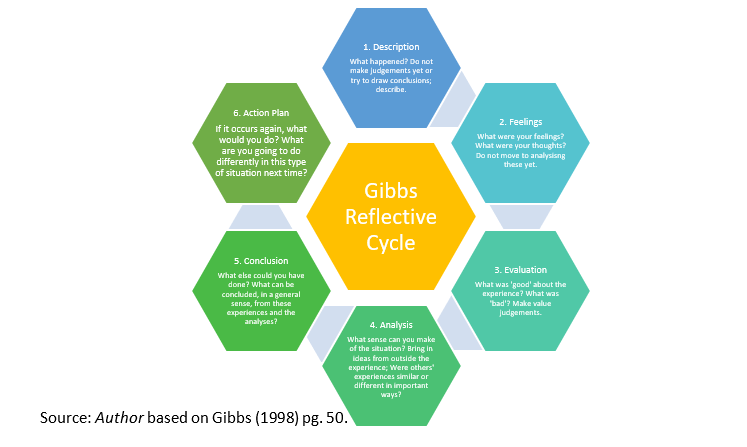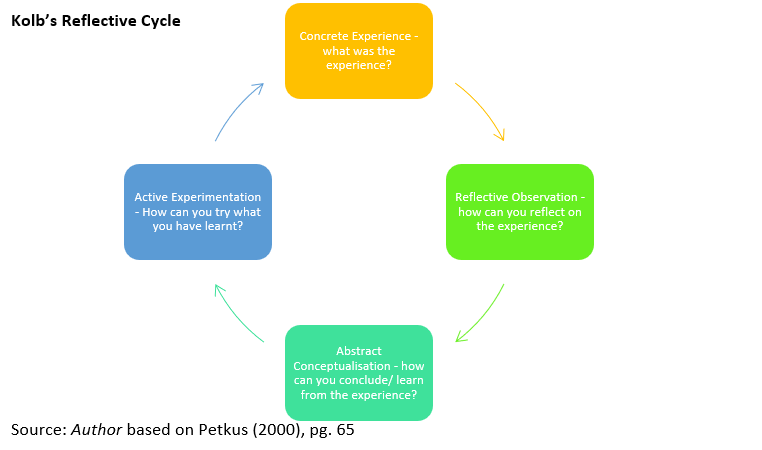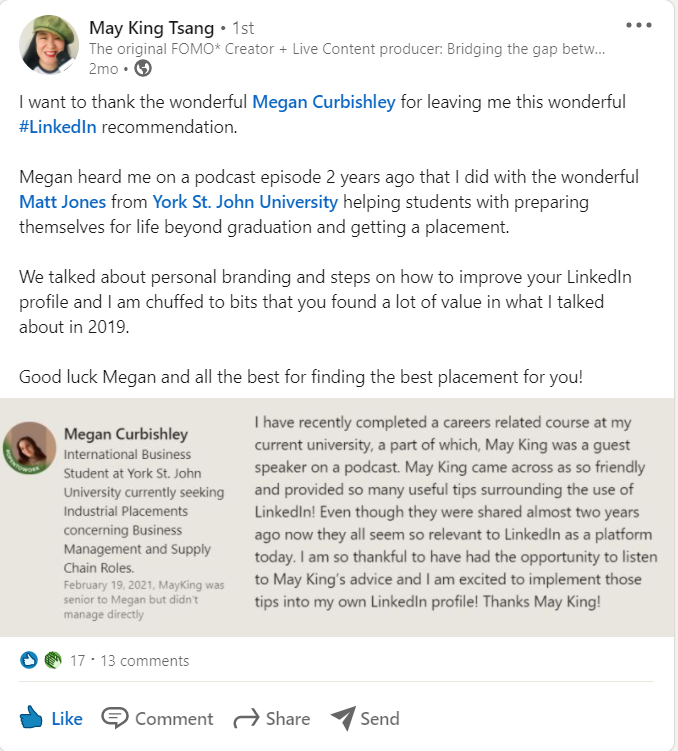During the first semester of my first year at York St John University, I did exceptionally well in all of my assignments. However, during my second semester, I was studying the module of Organisational Behaviour in the Digital Age. This module focused on workplace democracies of the past and was not something that I took interest in or fully understood. This resulted in a poor result in my assignment; I will utilise Gibbs’ (1998) Reflective Cycle to understand what went wrong and how to improve.

Description:
When completing the assignment, I did not conduct extensive nor detailed research into the topic and therefore a reduced effort was put into crafting my assignment.
Feelings:
The module of Organisational Behaviour in the Digital Age was uncompelling to me. I found the topics very boring and confusing, as some of the ideologies were similar but not identical. When I received my result, I felt as though I had let myself down and my disappointment was evident.
Evaluation and Analysis:
After reading my result, I realised that I had not put in the effort that was required for the module. Although I felt disappointed at the time, the poor result inspired me to put much more effort into the assignments that followed it. When considering other people’s opinions, I found that there was a mix of people in the module, some of which found the idea of workplace democracies interesting, and others had the same opinion as myself. When speaking to fellow students, there was a varied range of results from the assignment, and the majority of people I spoke to were also disappointed in their efforts and therefore their results.
Conclusion:
On reflection, I could have studied the key texts in more detail and I should have actively participated in seminars much more than I did. In order to avoid this disappointment, there were a range of things that I should have approached differently, and my attitude has definitely changed since then.
Action Plan:
In order to avoid this situation again, I ensure to actively participate in seminars and study the key texts, as well as additional readings, extensively so that I understand the topics to the best of my ability. This has been successful thus far, as I have maintained high grades even during a global pandemic.
The use of Gibbs’ Reflective Cycle has allowed me to analyse how poor academic performance in one particular module in my first year, has inspired me to maintain high grades in each assignment. I will continue to extensively study and research until the end of my university career, and into my professional career.
Hints and Tips: If there is room for improvement, see how you can do it. You could miss important opportunities if you do not.
Megan Curbishley.
Reference List:
Gibbs, G., 1998. Learning by doing: a guide to teaching and learning. London: FEU.


